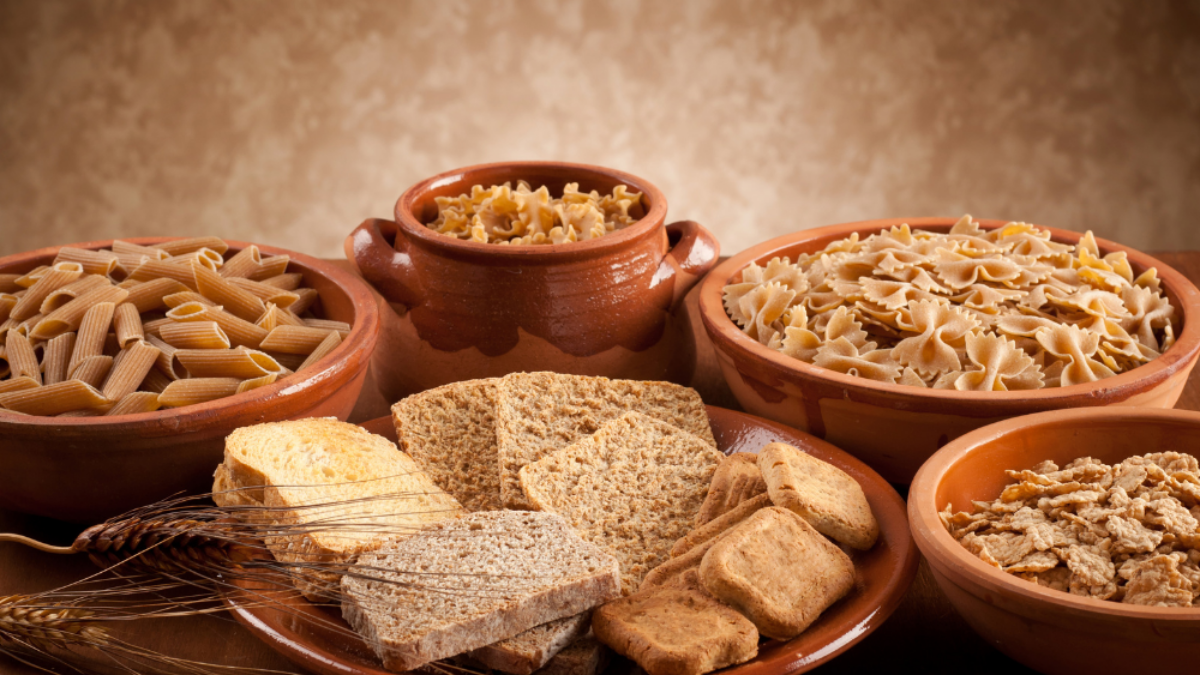Grains and their products are an integral part of the Greek Mediterranean diet. Grains, and especially whole or minimally processed grains, are at the base of the Mediterranean Food Pyramid, indicating their central role in this nutritional model.
Greek cuisine includes a variety of grains, such as wheat, barley, rice and corn. For example, wheat bread is served at almost all Greek family meals, highlighting the importance of grains in our diet. Pies, such as cheese pie and spinach pie, are also popular Greek dishes whose main ingredient is grain flour.
Grains consist primarily of carbohydrates, mainly in the form of starch.
In whole grains and their products, such as brown rice and whole grain bread, we also find significant quantities of dietary fiber. That is why whole grains are considered to be a better dietary option than refined grains, as they supply us with additional fiber and nutrients, compounds with significant health benefits.
Grains also contain small quantities of plant proteins, which are characterised as ‘low-quality’ proteins. This means that their protein does not contain all the essential amino acids. Specifically, lysine is the limiting amino acid in grains, meaning it is not present in sufficient quantities.
In terms of micronutrients, grains are a good source of B vitamins – such as thiamine, riboflavin, niacin and folic acid – and trace elements such as selenium, copper and manganese.
Whole grains appear to be a strong ally for our health, as their regular consumption has been linked to beneficial effects on our bodies. This is attributed to their nutritional profile.[1],[2]
Numerous studies have shown that whole grains are associated with reduced risk for chronic diseases such as cardiovascular diseases, type 2 diabetes and certain types of cancer.
What’s more, consumption of whole grains may contribute to healthy bowel function and prevent constipation.
Finally, whole grains can help regulate blood glucose levels. Whole grains have a lower glycaemic index than white, more processed grains. In practice, eating whole grains leads to more stable increases in blood glucose levels. This is especially important for people with diabetes or those who want to prevent the disease from appearing.
In conclusion, minimally processed grains, and especially whole grains, are a valuable nutritional option, offering numerous health benefits.
BIBLIOGRAPHY
[1] Aune D, Keum N, Giovannucci E, Fadnes LT, Boffetta P, Greenwood DC, Tonstad S, Vatten LJ, Riboli E, Norat T. Whole grain consumption and risk of cardiovascular disease, cancer, and all cause and cause specific mortality: systematic review and dose-response meta-analysis of prospective studies. BMJ 2016 353: i2716 doi:10.1136/bmj.i2716.
[2]Miller V, Micha R, Choi E, Karageorgou D, Webb P, Mozaffarian D. Evaluation of the quality of evidence of the association of foods and nutrients with cardiovascular disease and diabetes. A systematic review. JAMA Netw Open. 2022 5(2):e2146705.










